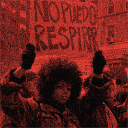
What Is a Generation?
Surely it is not just a matter of age or biology, but something more—a collective frustration with the world as it is and a desire to find new ways to change it.


Surely it is not just a matter of age or biology, but something more—a collective frustration with the world as it is and a desire to find new ways to change it.

When left activists divide their energies between the immediate present and the distant future, we miss the necessary political work between now and then.

Politics cannot just be about consensus. It must also be about conflict. More important, it must always be about asking for more.

No matter who becomes the Democrats’ nominee, Bernie Sanders’s campaign marks a sea change within the Democratic Party.

In the wake of the Paris terror attacks this past November, François Hollande reassured the French public, “Terrorism will not destroy the republic, because it is the republic that will destroy terrorism.” He then pressed the French parliament to give …

By remaining outside the mainstream, little magazines can articulate those demands and alternatives that are just left of the possible. Our hope is that these ideas will trickle up.

Sheldon Wolin dedicated his career to championing not just a new politics but a new kind of politics—one that refused to substitute top-down administration for the messy uncertainties of democracy.

Leftists will never entirely be released from the obligation to engage with the Democratic Party, but the left’s strength, and its power, will always lie outside formal politics.
With a counter-argument from Michael Kazin.

Seventy years after the bombing of Hiroshima, we still live in the mushroom cloud of secrecy and permanent emergency imposed by nuclear weapons.

The new groundswell of mobilized citizens suggests an important break—not only with how we imagine politics but also with how we practice it.
The democratic left has always operated on a theory of trickle-up politics. Strikes, protests, and acts of civil disobedience all begin at the bottom—on the shop-floor, in the university, at the town square—and then make their way up. The abolitionists …

Introducing our special Fall edition on Politics and the Novel—with essays by Nikil Saval, Vivian Gornick, Benjamin Hale, Helen Dewitt, Nina Martyris, and Roxane Gay—David Marcus asks: what happened to the political novel?

For Zadie Smith, the time had come for the radicalism of experiment and the realism of political economy—for a new social realism that was capable of capturing both the mechanics and experience of today’s growing inequality.

By working outside structures of power one may circumvent coercive systems but not necessarily subvert them. Localizing politics—stripping it of its larger institutional ambitions—has its advantages, but without a larger structural vision, it does not go far enough.

On the rise and fall of the newsmagazine